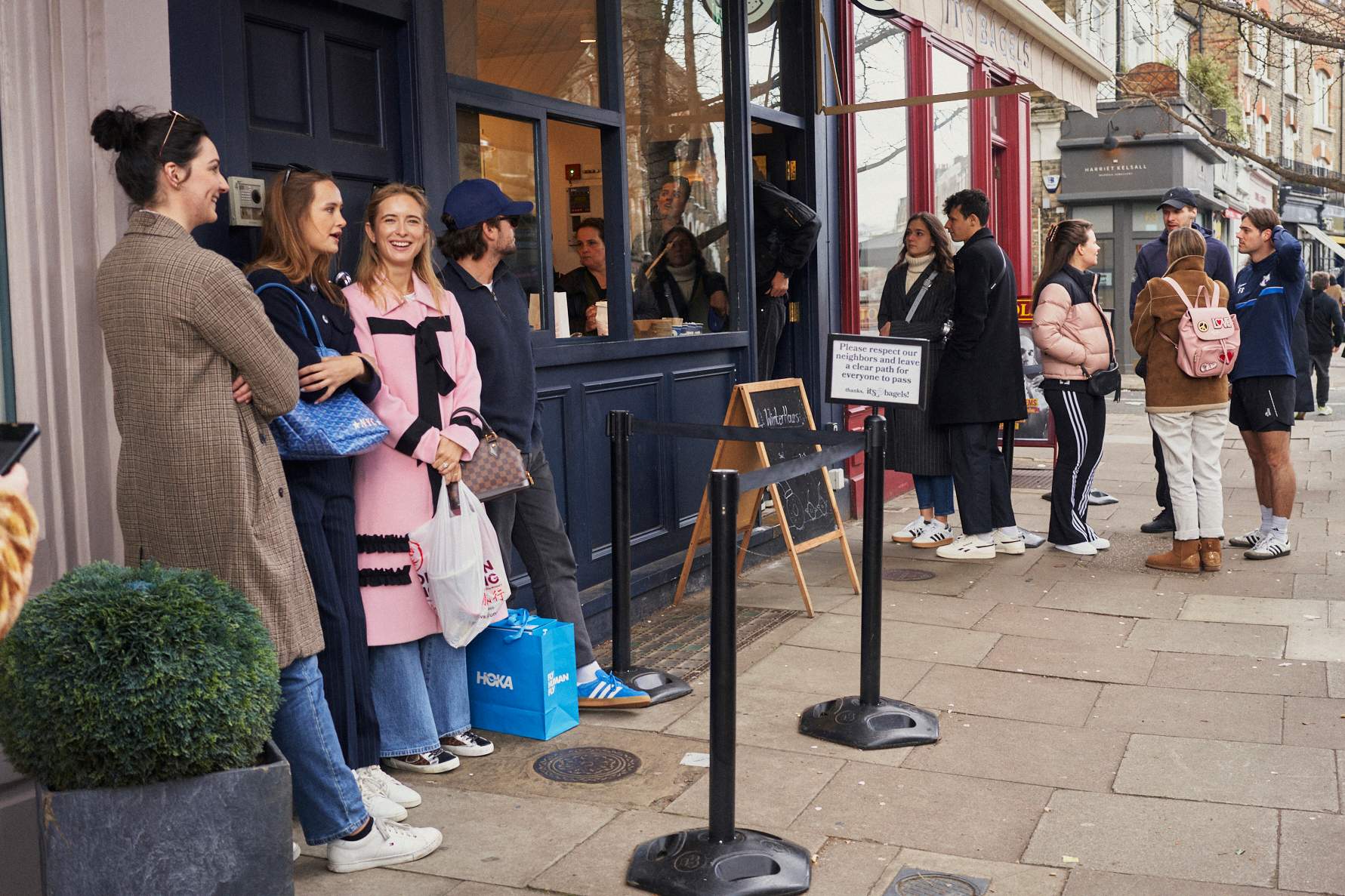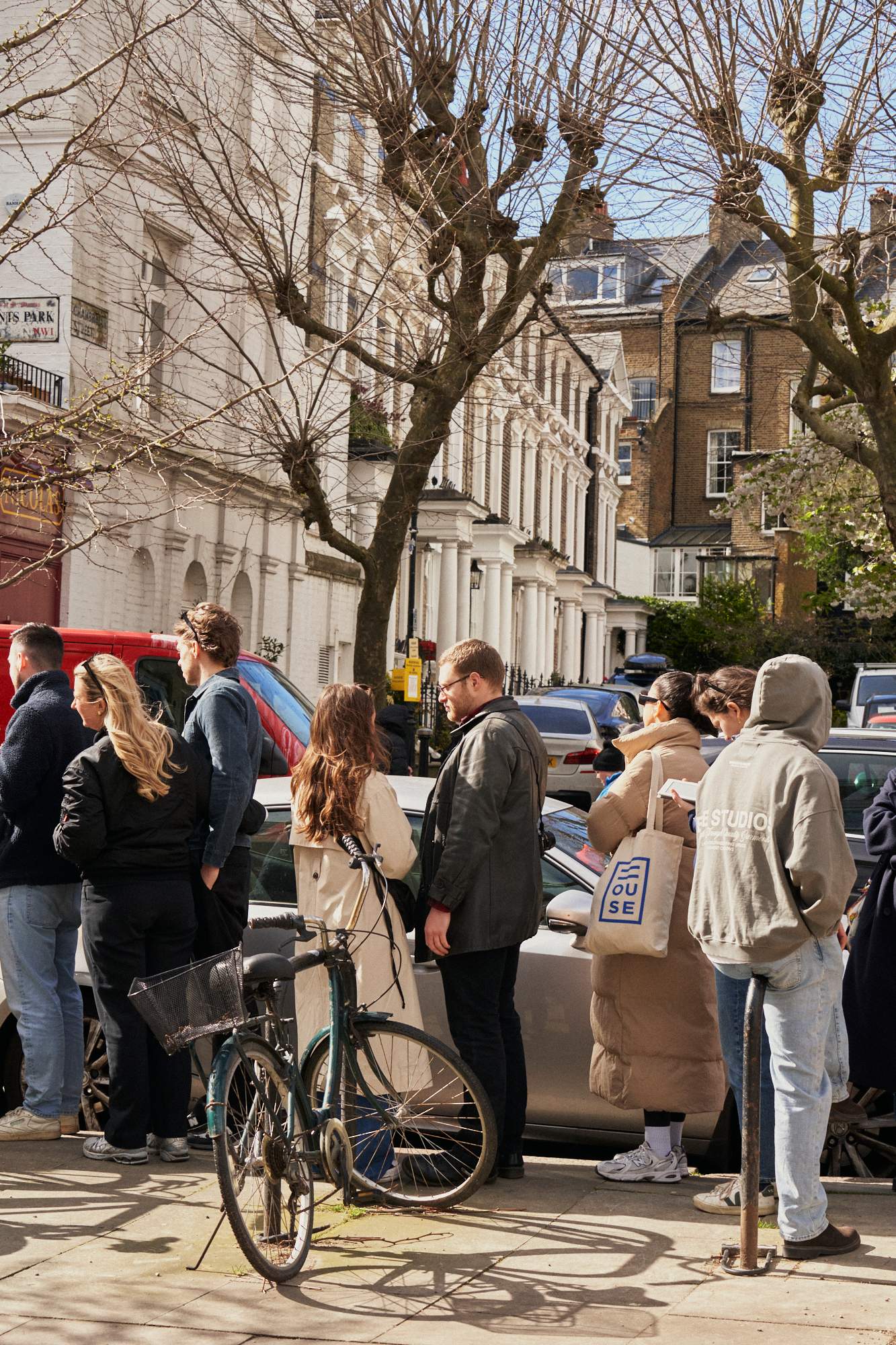Business: The Queue / Global
Patience is a virtue
Good things come to those who wait. And wait. But is that old adage the reason why we’re all too eager to form an orderly line in anticipation of some hitherto unavailable luxury – a new phone, say, or even a particularly moreish bagel? It’s a question that has occupied the minds of a surprising number of thinkers – and probably everyone stuck at the end of a line. So why do we wait? And is it really worth it?
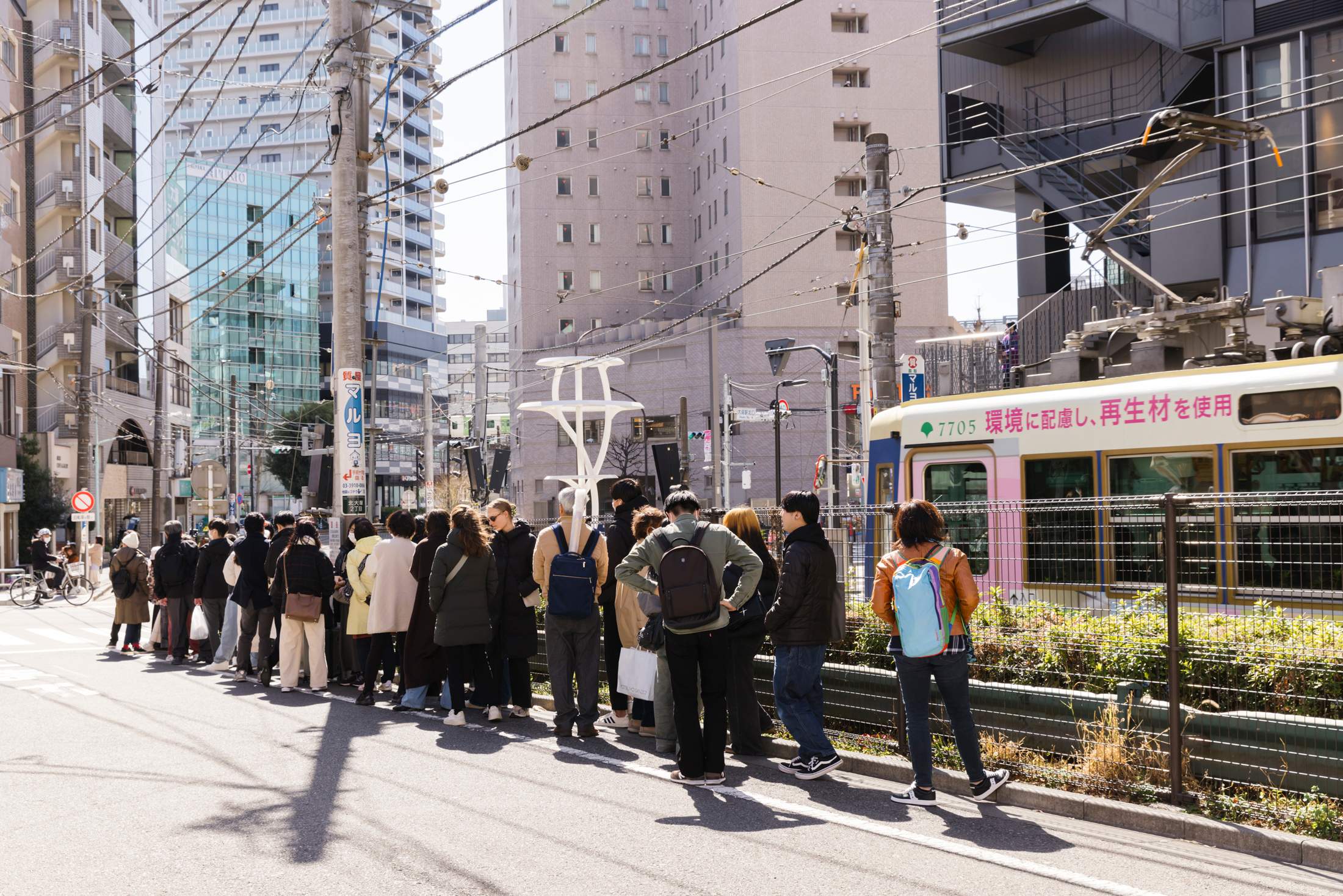
The queue endures. Back before the misery of coronavirus, there was a spate of people getting in very long lines for fashion drops, over-logoed skatewear and even covetable buns. But then – phew – the pandemic killed the queue. It was replaced by text messages telling you when your time was up (not in grim reaper style, rather that your table was ready). But now? Otherwise sane folk are queueing for loaves of bread like it’s the ussr in the 1970s. People are voluntarily spending whole mornings in formation just to gobble a cream puff. Generation instant gratification has discovered a yearning for a very delayed payoff. This waiting game has even ensnared the worlds of academia and psychology as people ponder what the hell is going on. Not wanting to miss out on the action, or inaction, monocle gets in line to find out how lust and restraint are intertwined. —
bistro
Cheap as chips
Bouillon Pigalle, Paris
When it comes to classic French bistros, Bouillon Pigalle is a hit with Parisians and visitors alike. Located on Place Pigalle, in the heart of the city’s former red-light district, the queue outside the restaurant regularly snakes around the corner of the block, with waiting times that can exceed an hour.
Waiters in white shirts and black waistcoats serve dishes ranging from soupe à l’oignon and oeuf mayonnaise to the French-cuisine cornerstone steak frites, all at alluring prices. Many of the people queueing outside note that this is a considerable part of the place’s appeal. “I’m queueing today with my flatmates from back home in Germany,” says Stephanie Schachel, a student living in Paris while spending a semester at Sciences Po. “I know this place: it’s cheap but good.” Another queuer, Nicolas Lopez, is also an international transplant to the city and showing visitors around. “I wanted to introduce my family to the concept of a bouillon [a restaurant that serves traditional French cuisine],” he tells monocle. “I particularly like the saucisse-purée [sausage served with mash]. It’s French and inexpensive.”
Everyone in the queue agrees, Bouillon Pigalle is perfect for an extended lunch with friends, perhaps with a carafe of wine, which here can range from a modest un quart to a supersize jeroboam; again, at prices that are hard to beat. “We are queueing because this place has the esprit bouillon [bouillon spirit],” adds Cécile Vassas. “There’s traditional French cuisine and a convivial brasserie atmosphere inside. And you can always order steak frites.” The consensus is: the queue might be long but once you make it through the door you will be rewarded tenfold.
bouillonlesite.com
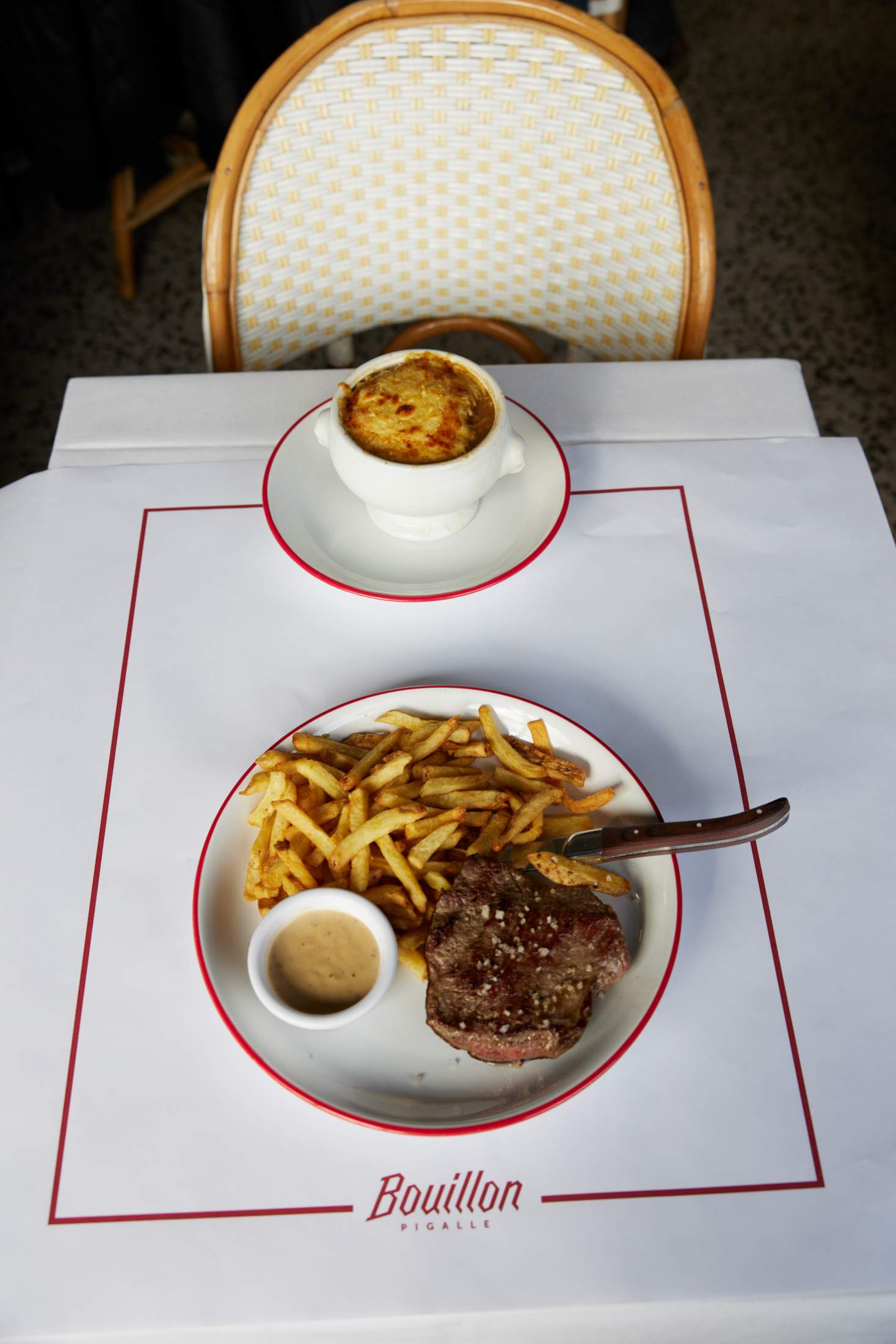
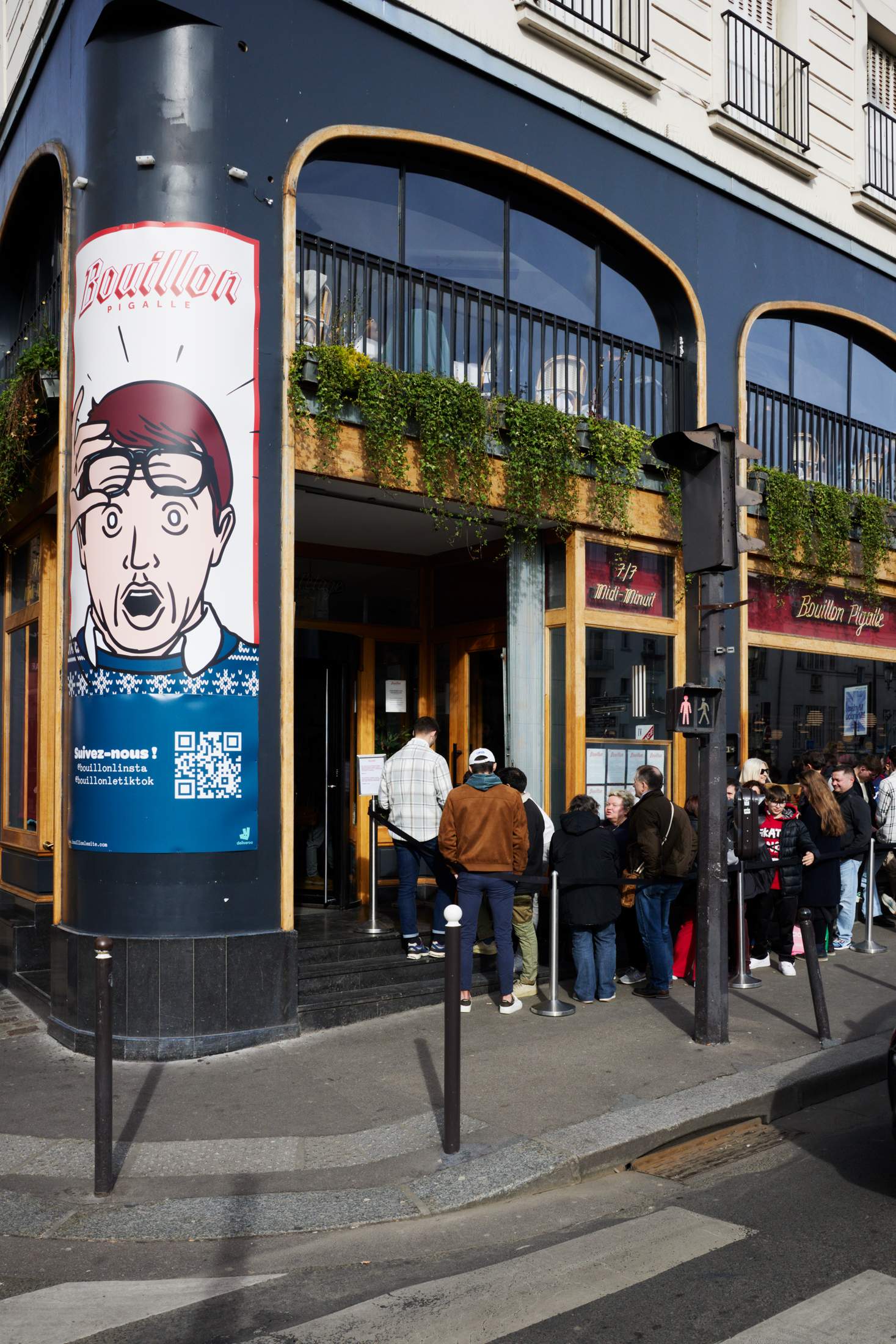
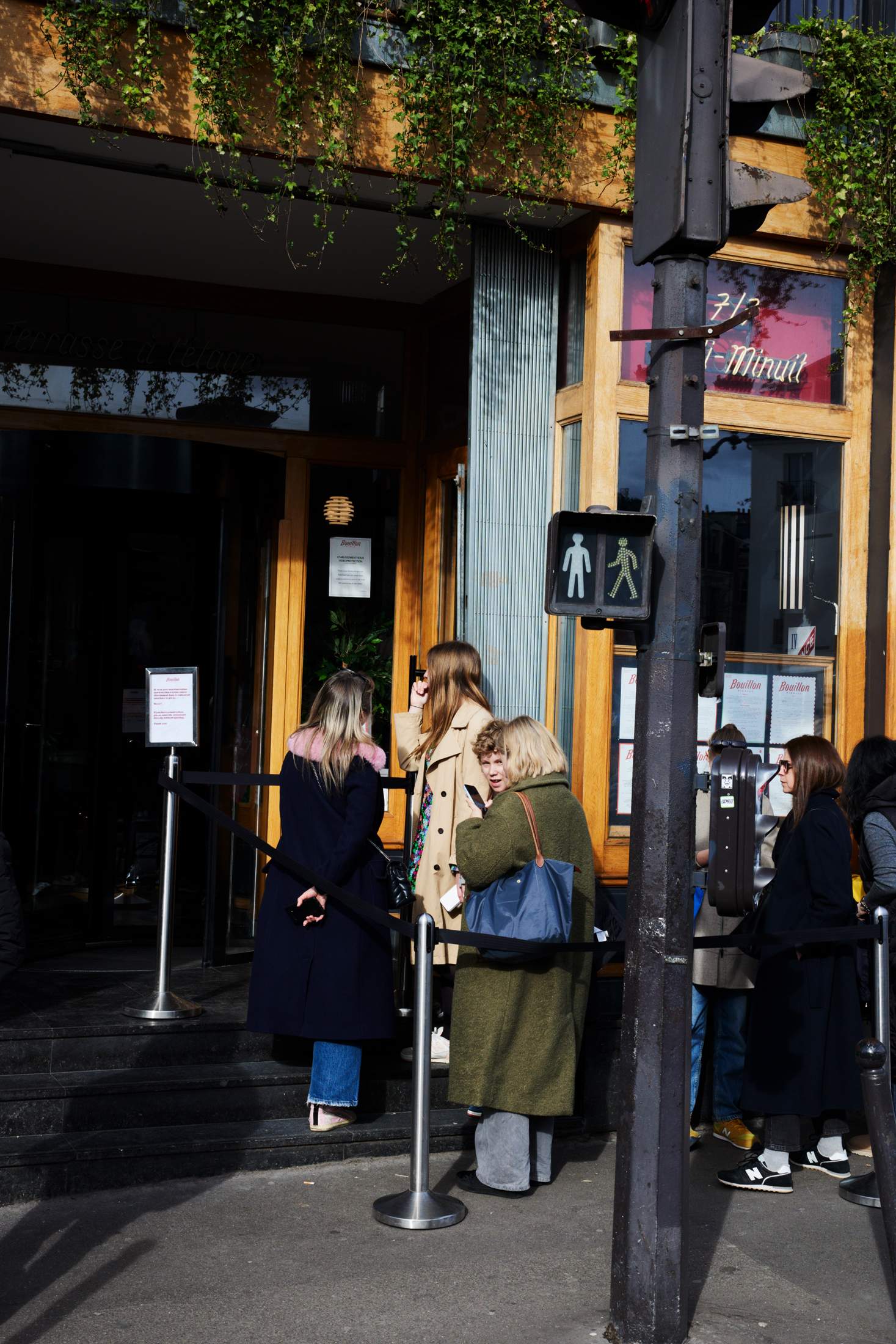
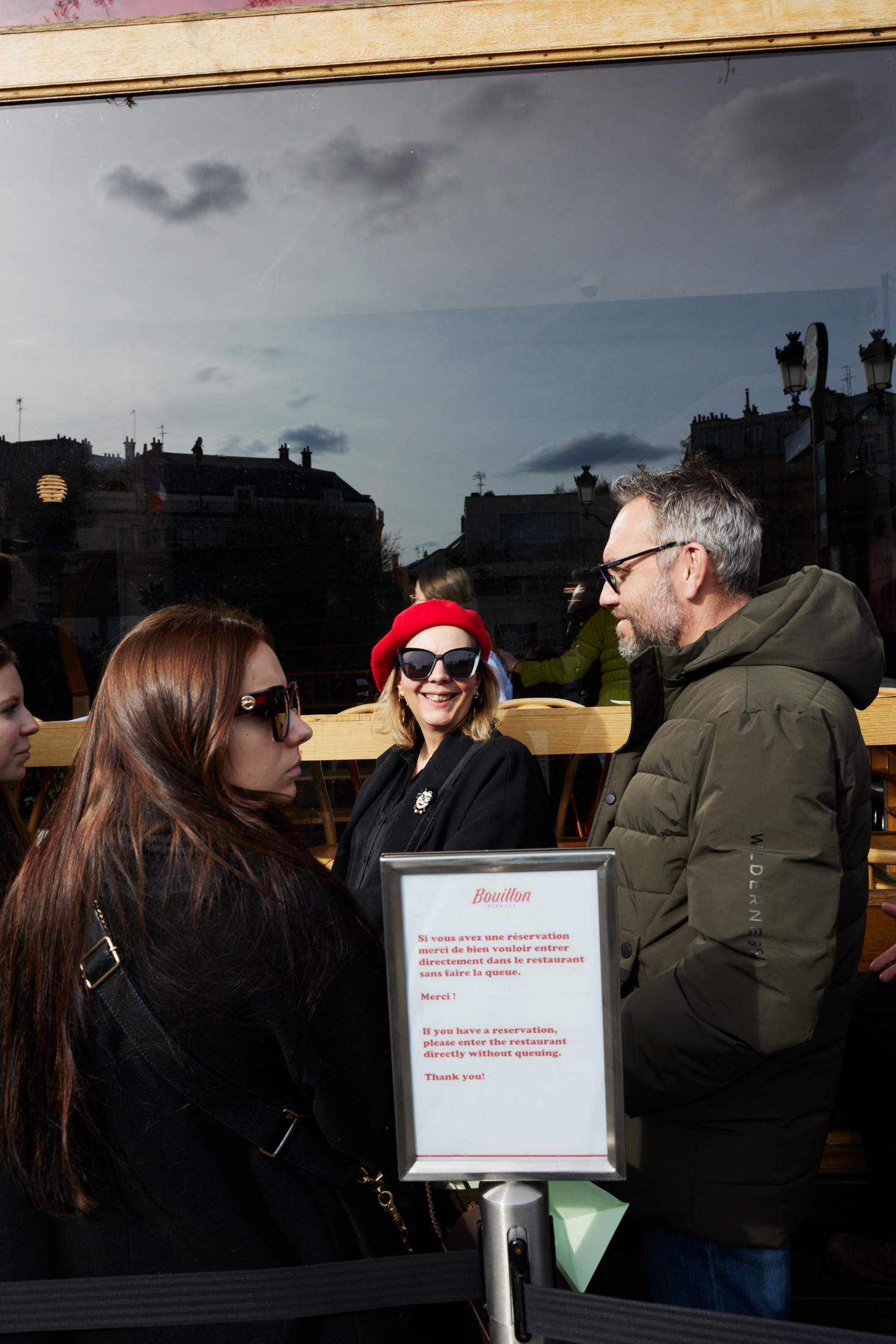
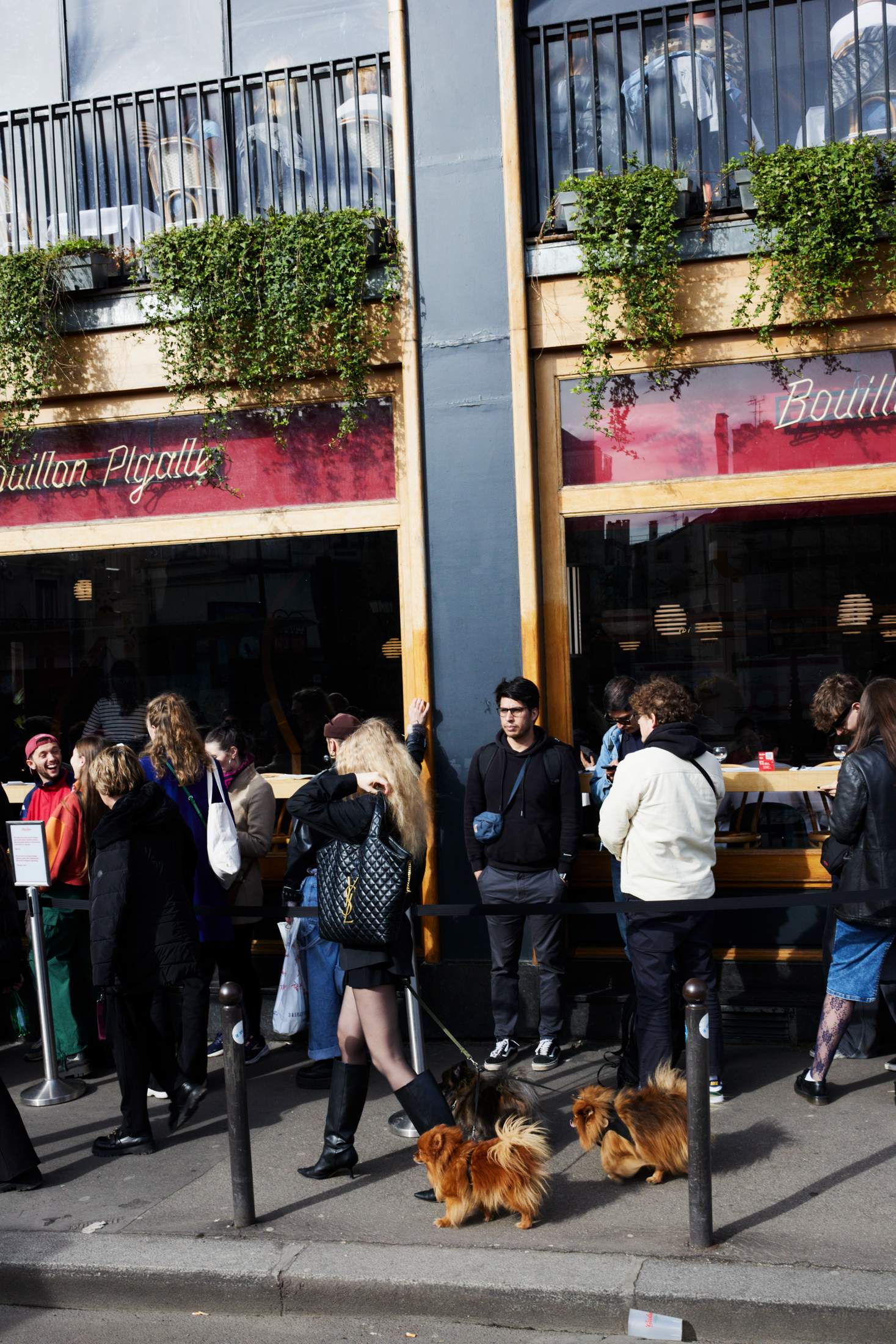
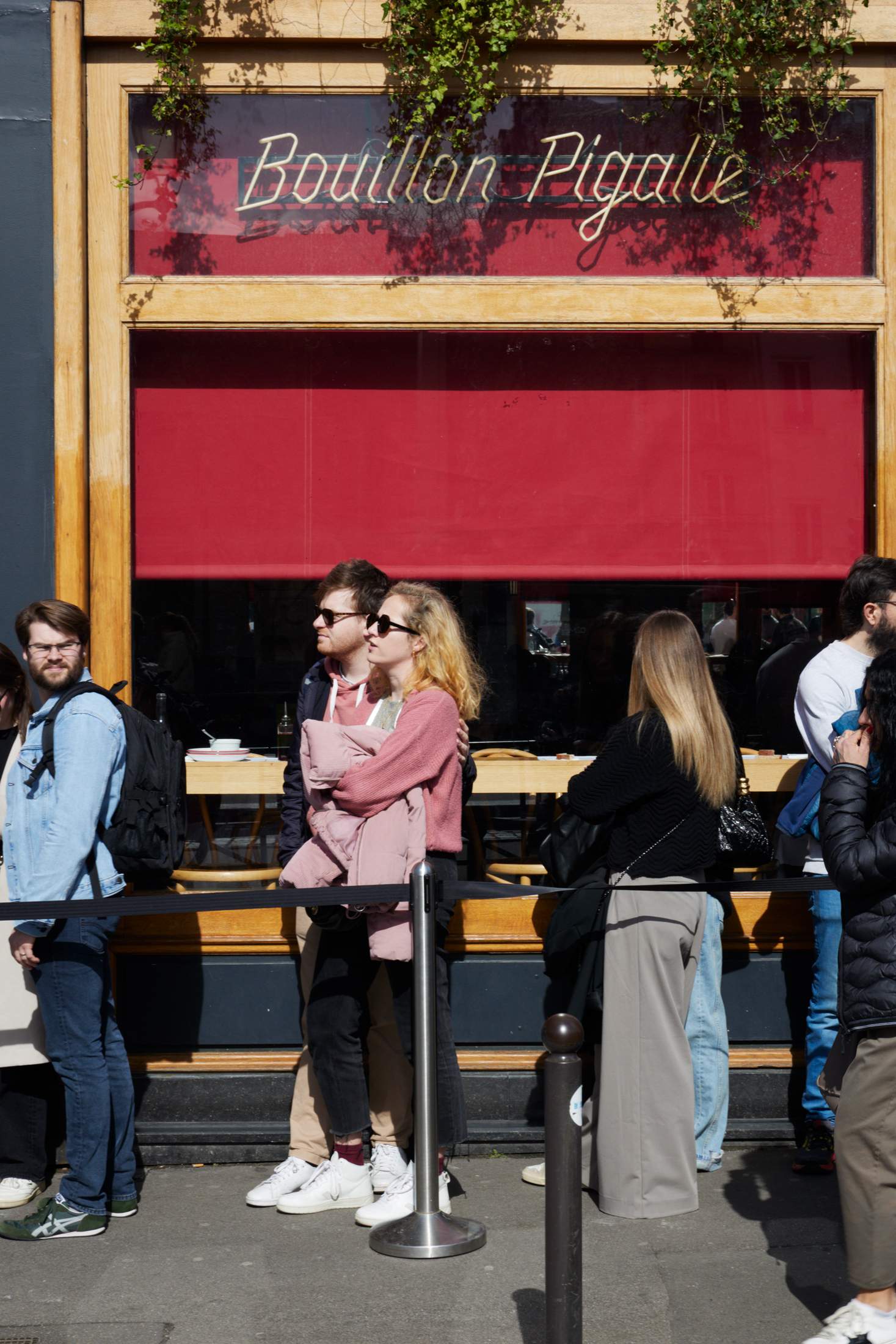
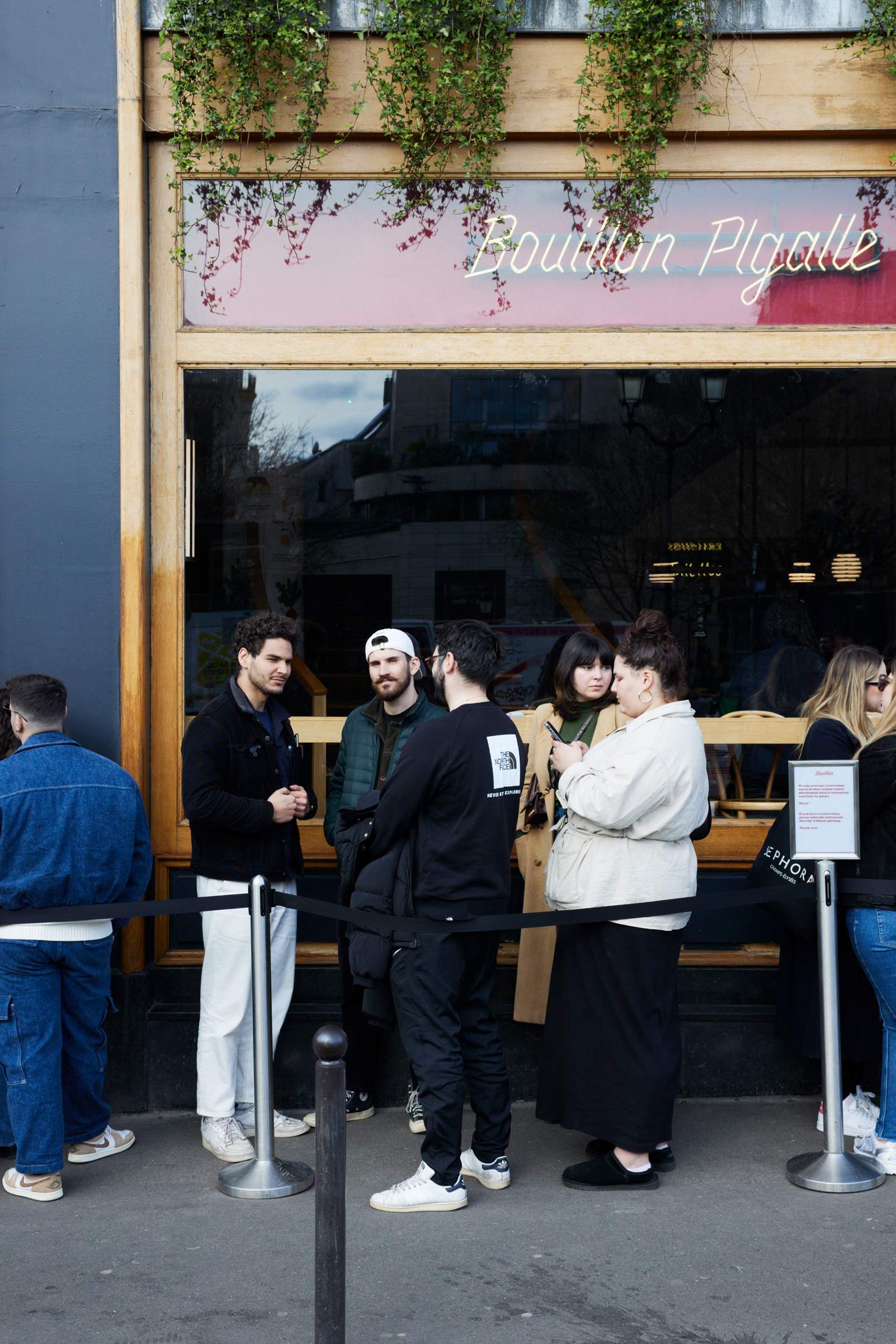
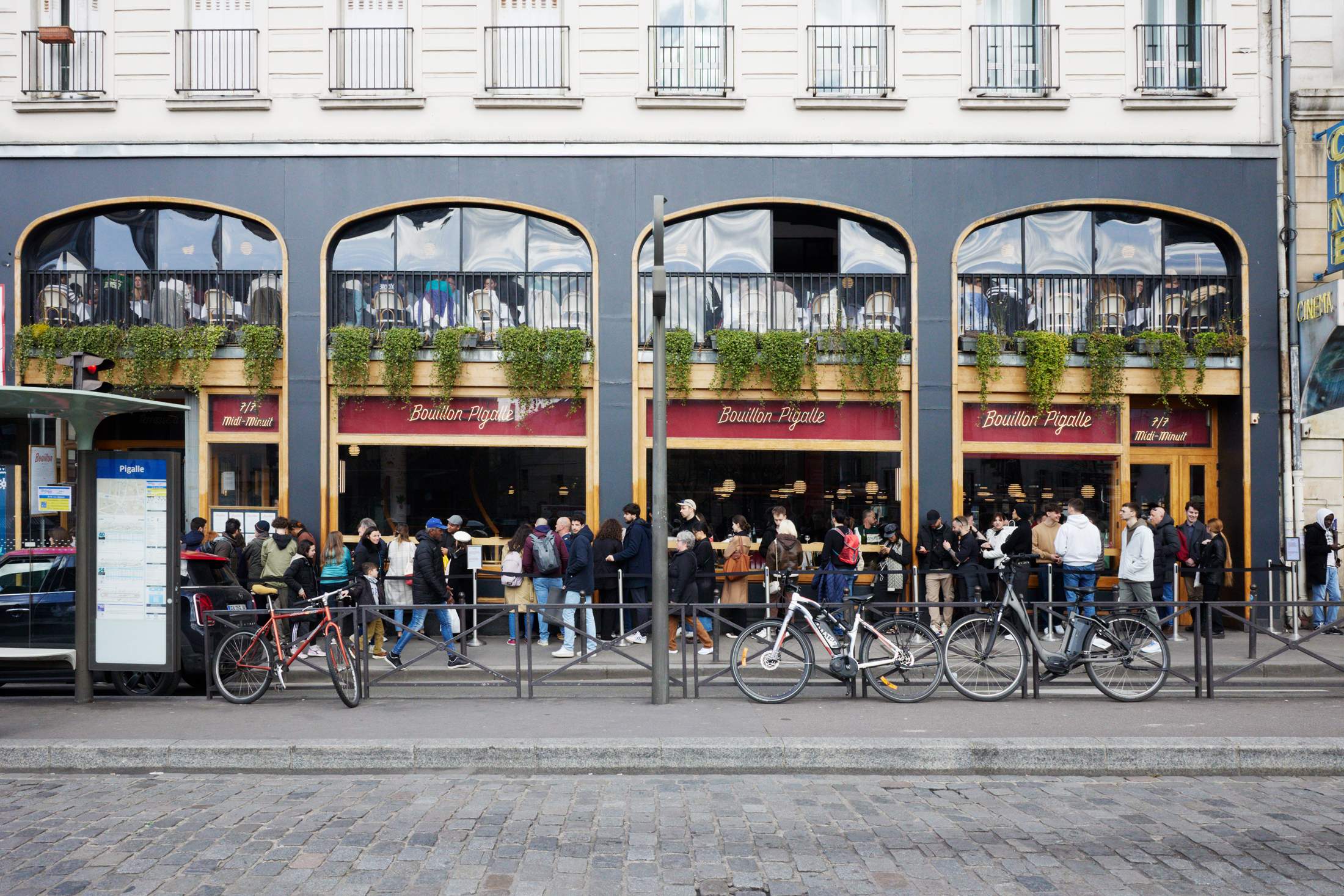
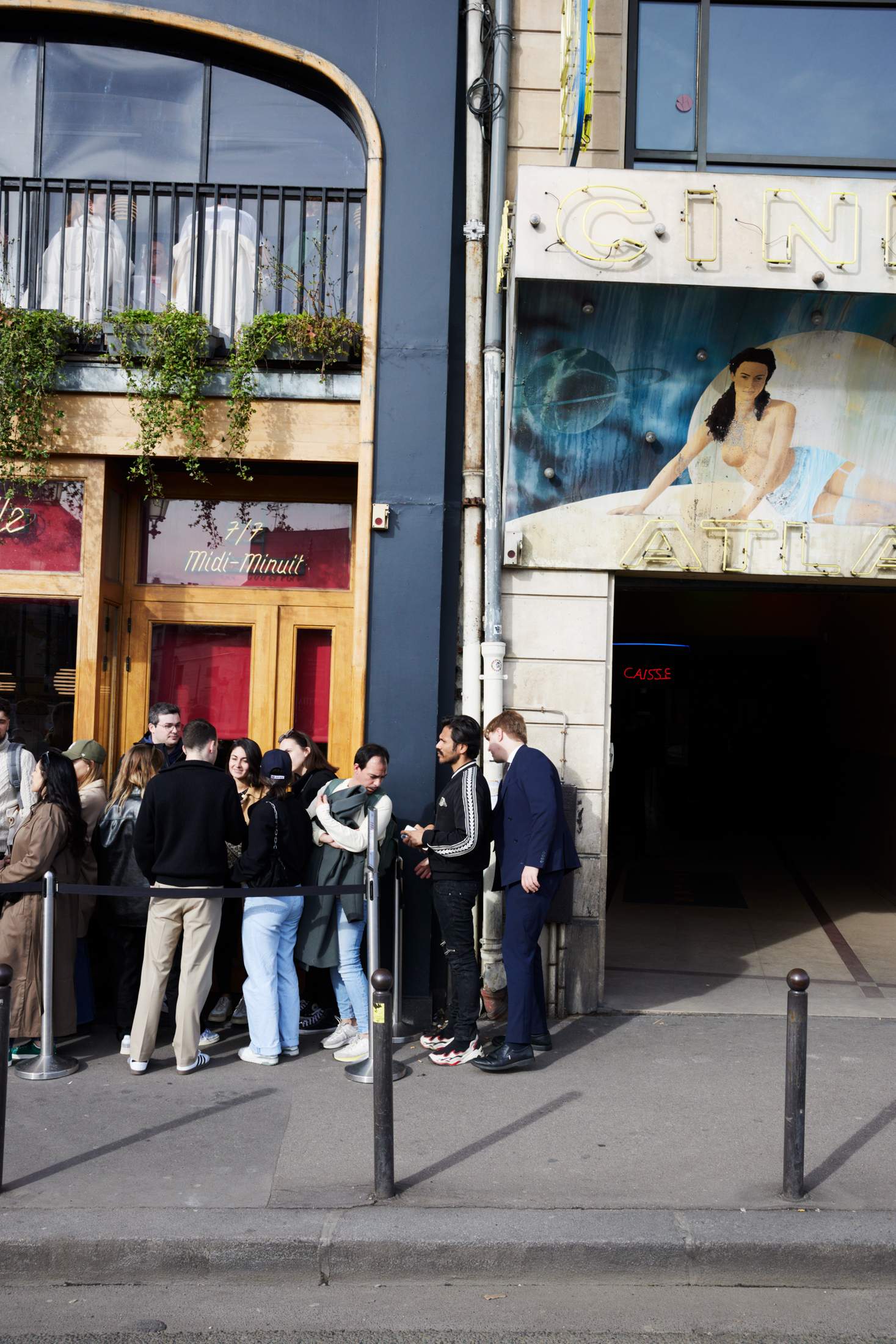
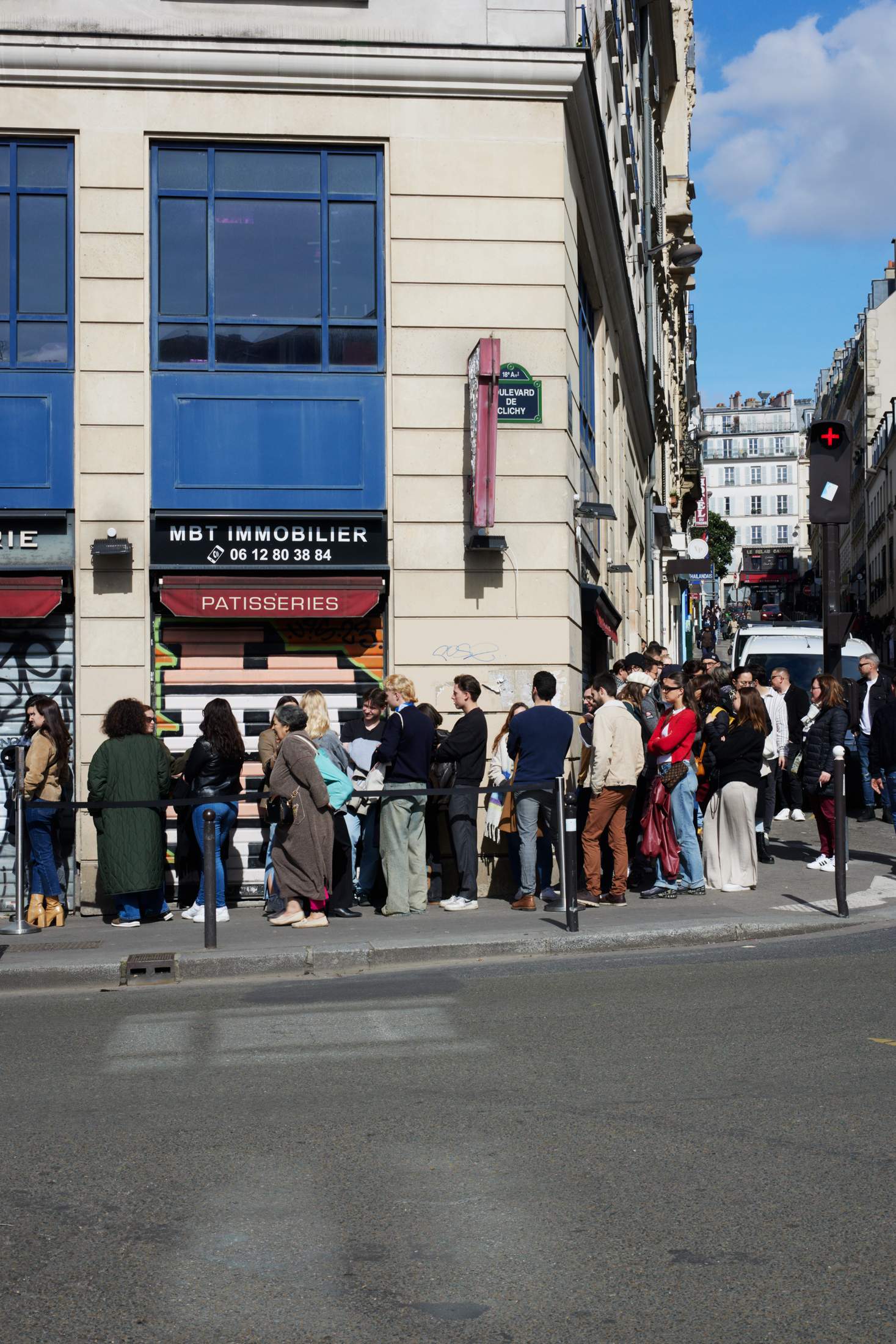
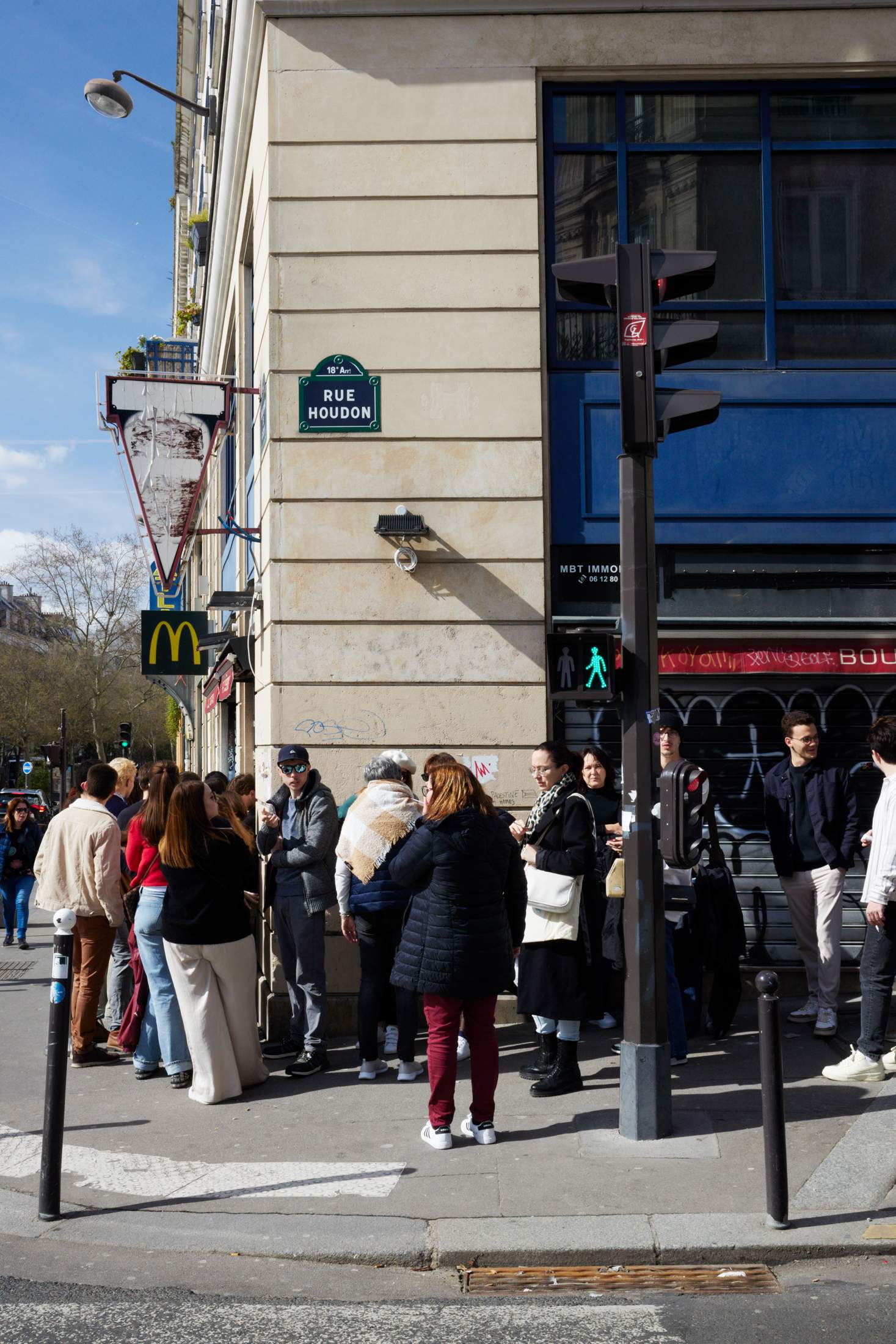
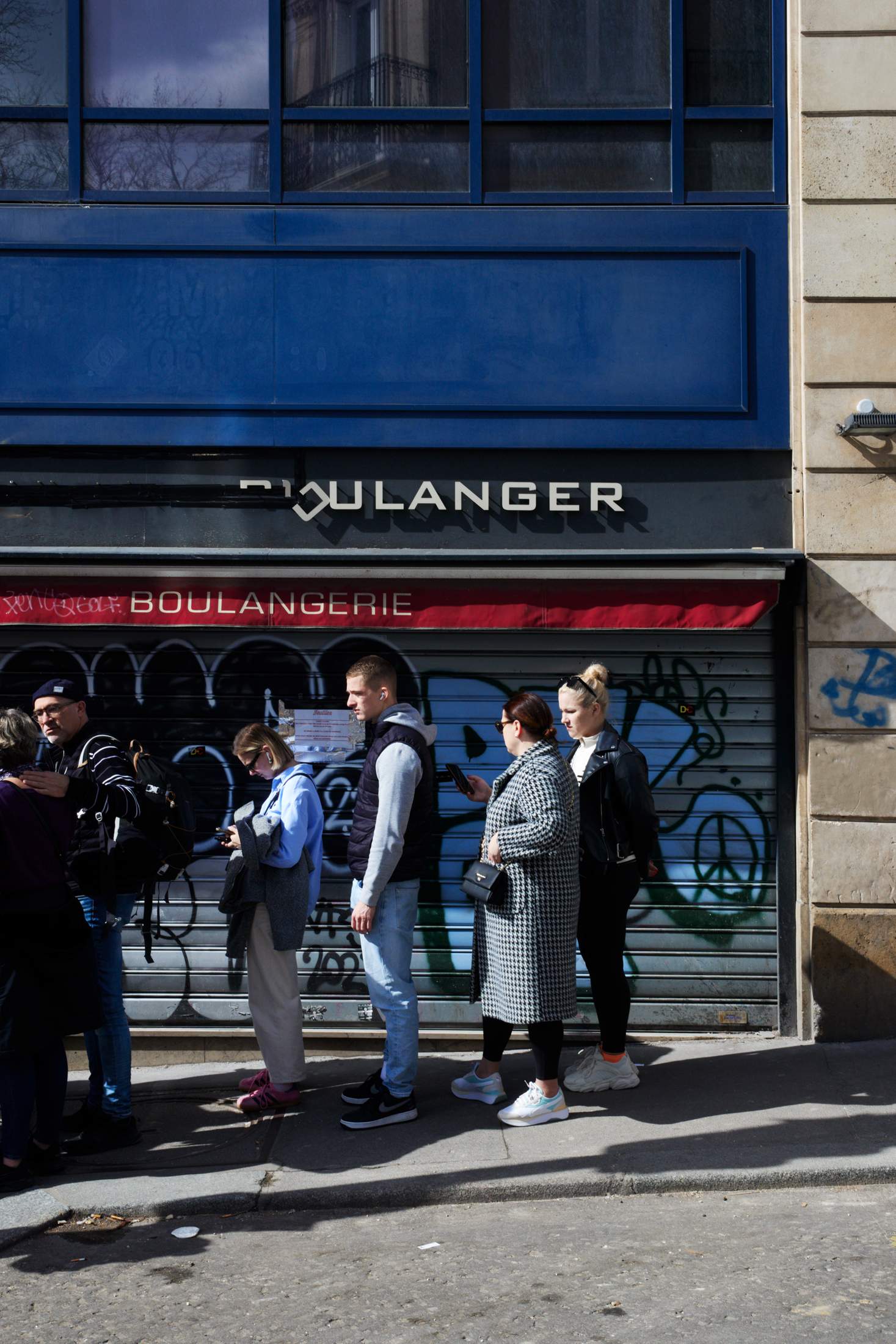
Culture of the queue
Queues are fascinating because they make visible the values and norms that differ between cultures.
Many countries pride themselves on their queueing etiquette. People in the UK boast of their ability to form orderly lines – rules around queueing can even be found in the country’s citizenship test. In other places, most adopt a looser approach. Chinese queuers operate a “buddy system”, where people either keep their friend’s place or pay someone else to do it for them. In India, where queueing protocol has long been more relaxed, the middle and upper classes adhere to stricter queueing rules as a marker of modernity.
What is considered fair also varies. Research on queues in the US finds that cutters are often met with disdain. In Denmark, where social trust is much higher, those who cut in line are often forgiven under the assumption that they have a good justification. Meanwhile in countries such as the United Arab Emirates, it is fully accepted that the ruling class can walk to the front of the line. The same happens in Thailand, where local politicians and business leaders are often ushered forwards.
Some cultures find queueing an annoyance, while others are more likely to see them as a signal of value. In Russia there’s a joke that you should join a queue and then ask the person in front of you, “Hey, what are we waiting for?”
Further reading:
Elliott Weiss is a professor of business administration and co-author of papers such as “Line, Line, Everywhere a Line: Cultural Considerations for Waiting-Line Managers.”
onigiri shop
Banging the drum
Onigiri Bongo, Tokyo
Come rain or shine, there’s always a queue outside Onigiri Bongo, a renowned onigiri [rice ball] shop in Otsuka. At the weekend people have been known to wait for more than six hours. When monocle visits, the queue is already taking shape at 08.45 – nearly three hours before opening time. The first to arrive get a stool. Everyone in the queue is served green tea and spirits are high.
Bongo’s owner is Yumiko Ukon, a youthful 72-year-old, who has been working six-day weeks for the past 40 years. “I’m the face of this place and I don’t like to disappoint people, particularly my regular customers,” she says. Her late husband started Bongo in 1960; they met after she tried one of his onigiri on a visit to Tokyo. It was love at first bite.
Today, Ukon runs a tight ship with a team that starts work at 07.00 and spends the morning prepping before the doors open at 11.30. Ukon uses rice from Iwafune in Niigata prefecture and a wooden mould to make the ball, adding any of the more than 50 fillings on offer and wrapping it in seaweed. “People crave the taste of home-cooked food”, says Ukon.
Kiyoe and Michiyo from Tokyo are the first in line. They saw Bongo on TV. “It’s fine,” says Kiyoe of the queue. “Women are used to waiting.” Masakazu has come all the way from Shizuoka. “I’ve never waited this long for anything,” he says. He’s planning to order the grilled salmon onigiri, Bongo’s most popular. Sujiko (salted salmon roe) is another favourite, as is egg yolk soaked in soy sauce.
When the restaurant recently relocated, the old interior came too, including the worn counter. “The world is changing but nothing changes here and that’s how people like it,” says Ukon.
2 Chome-27-5 Kitaotsuka, Toshima City, Tokyo
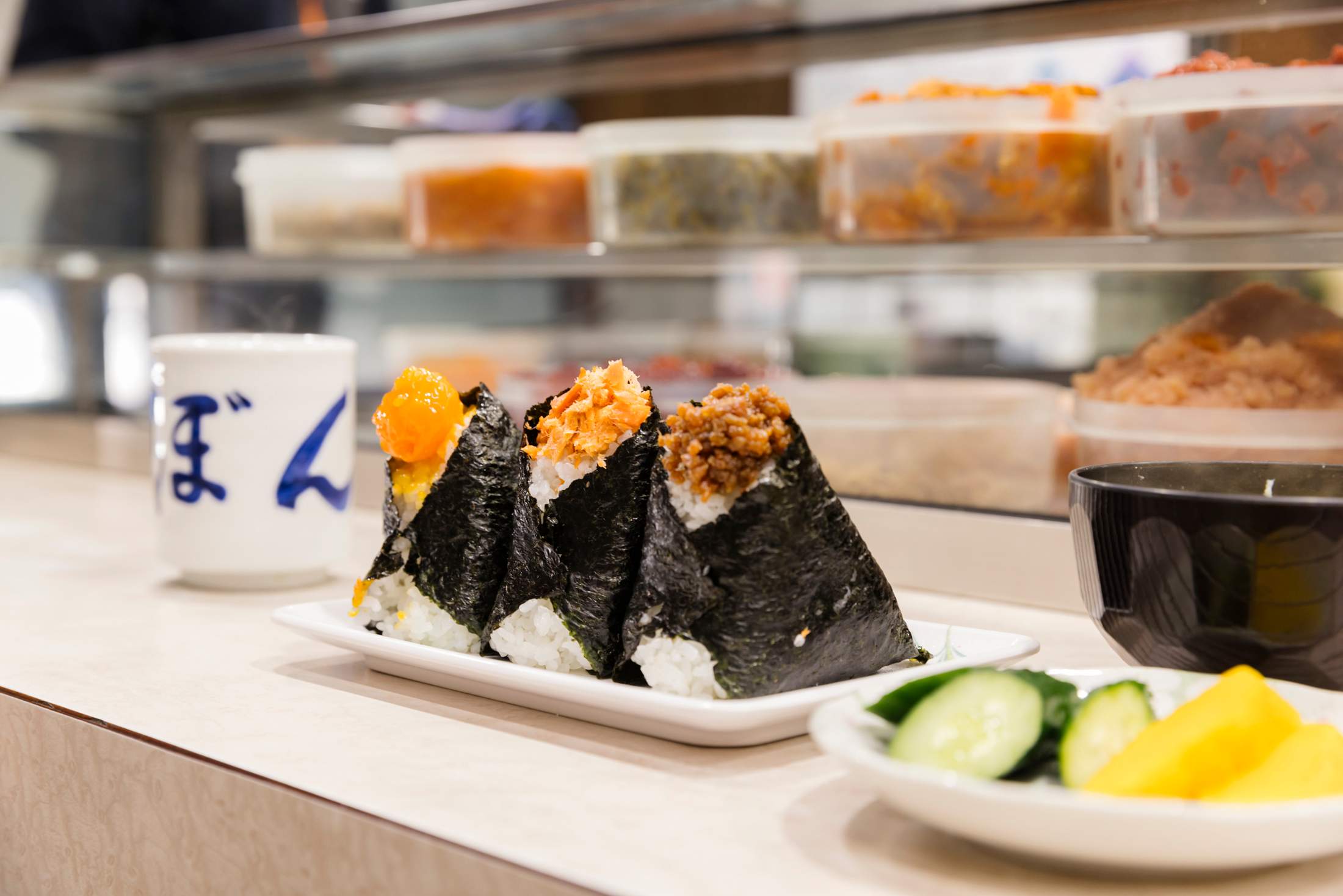


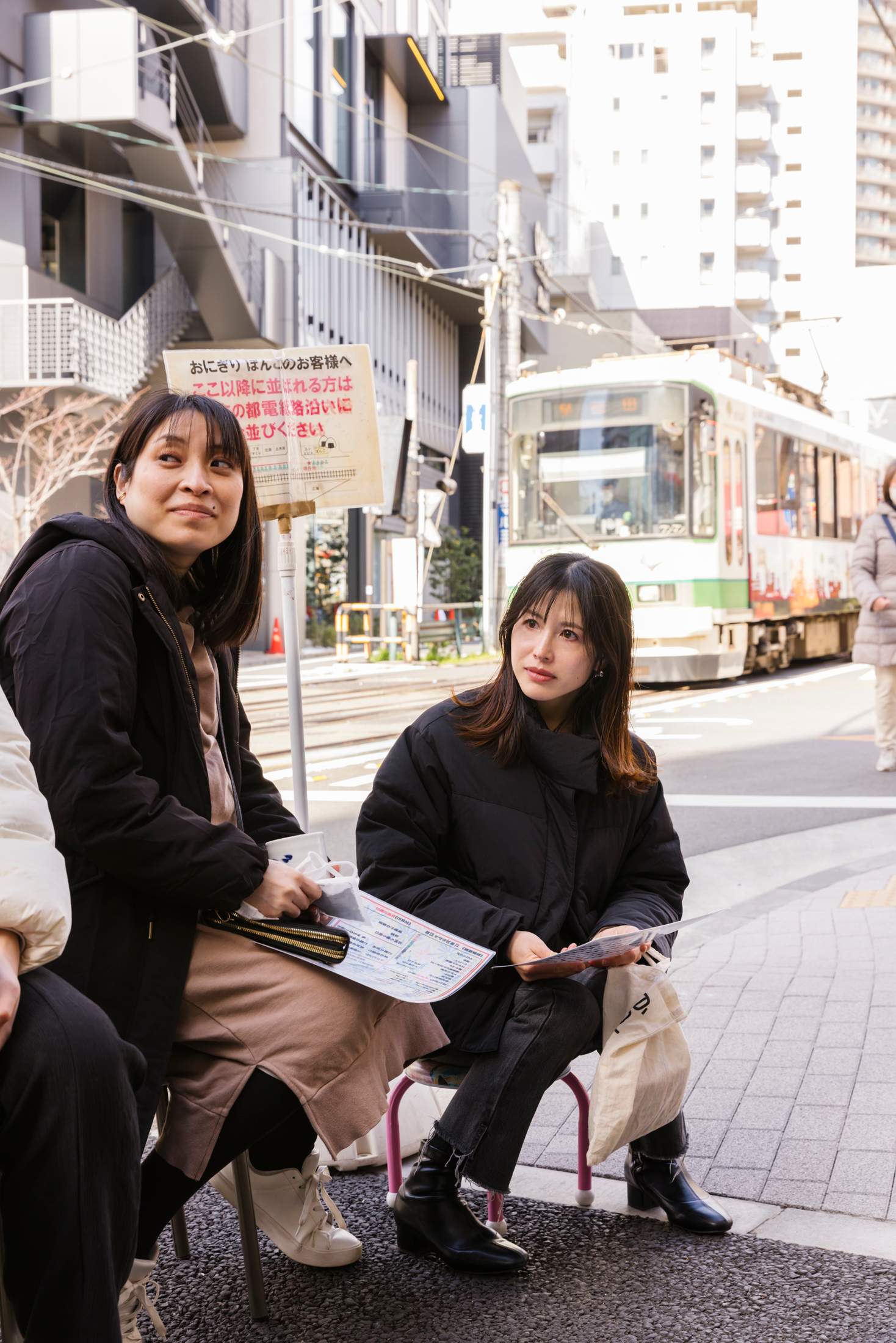
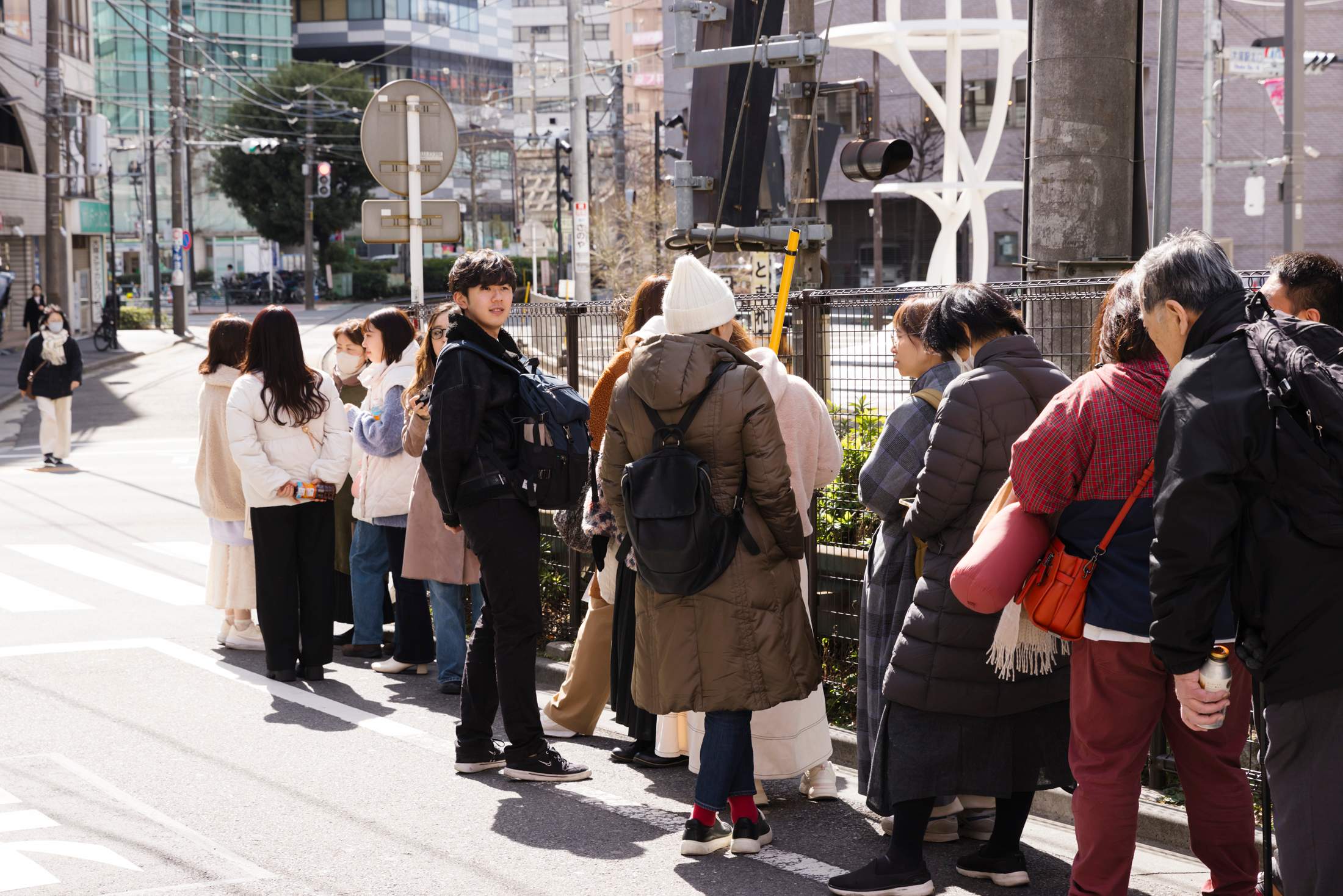
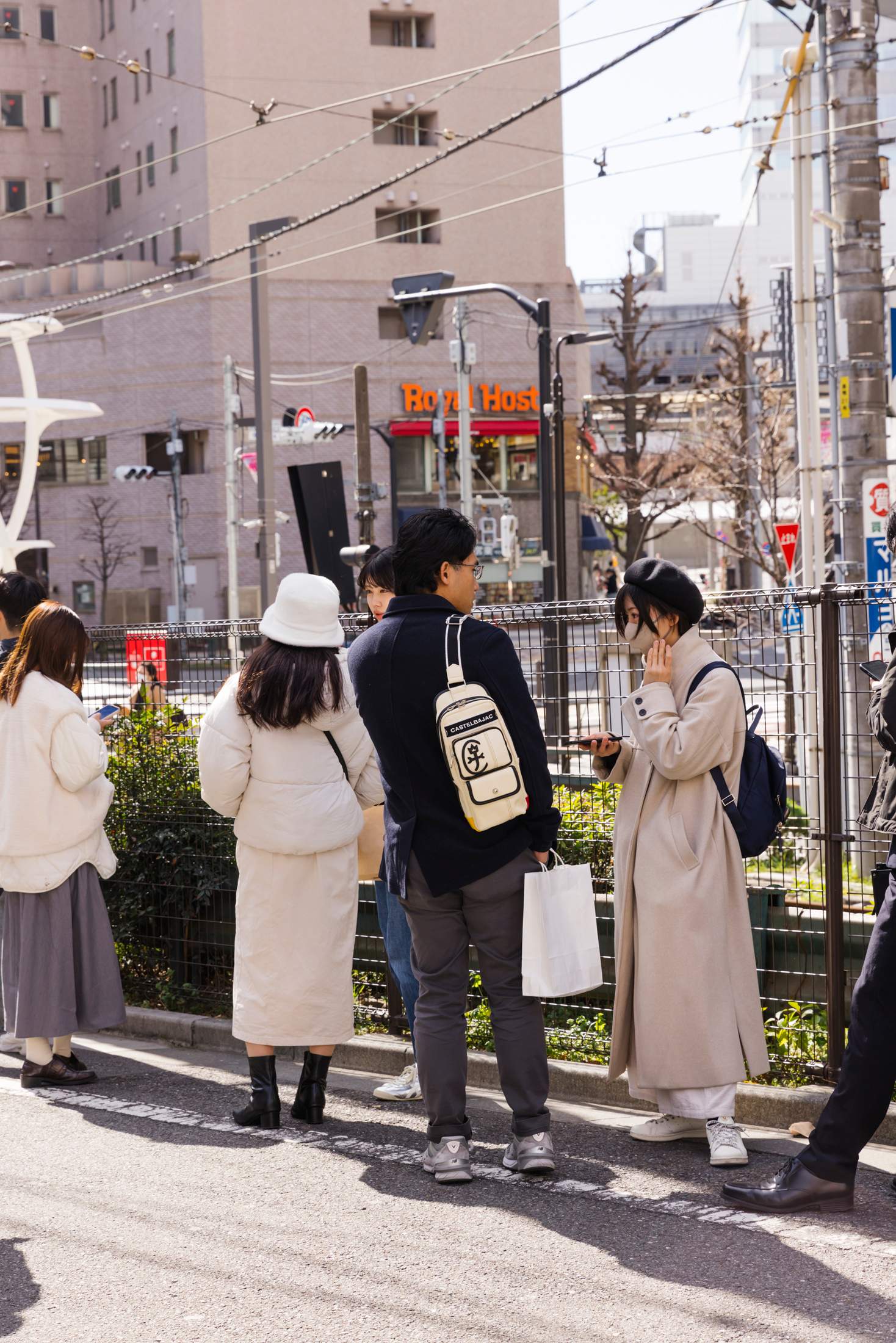
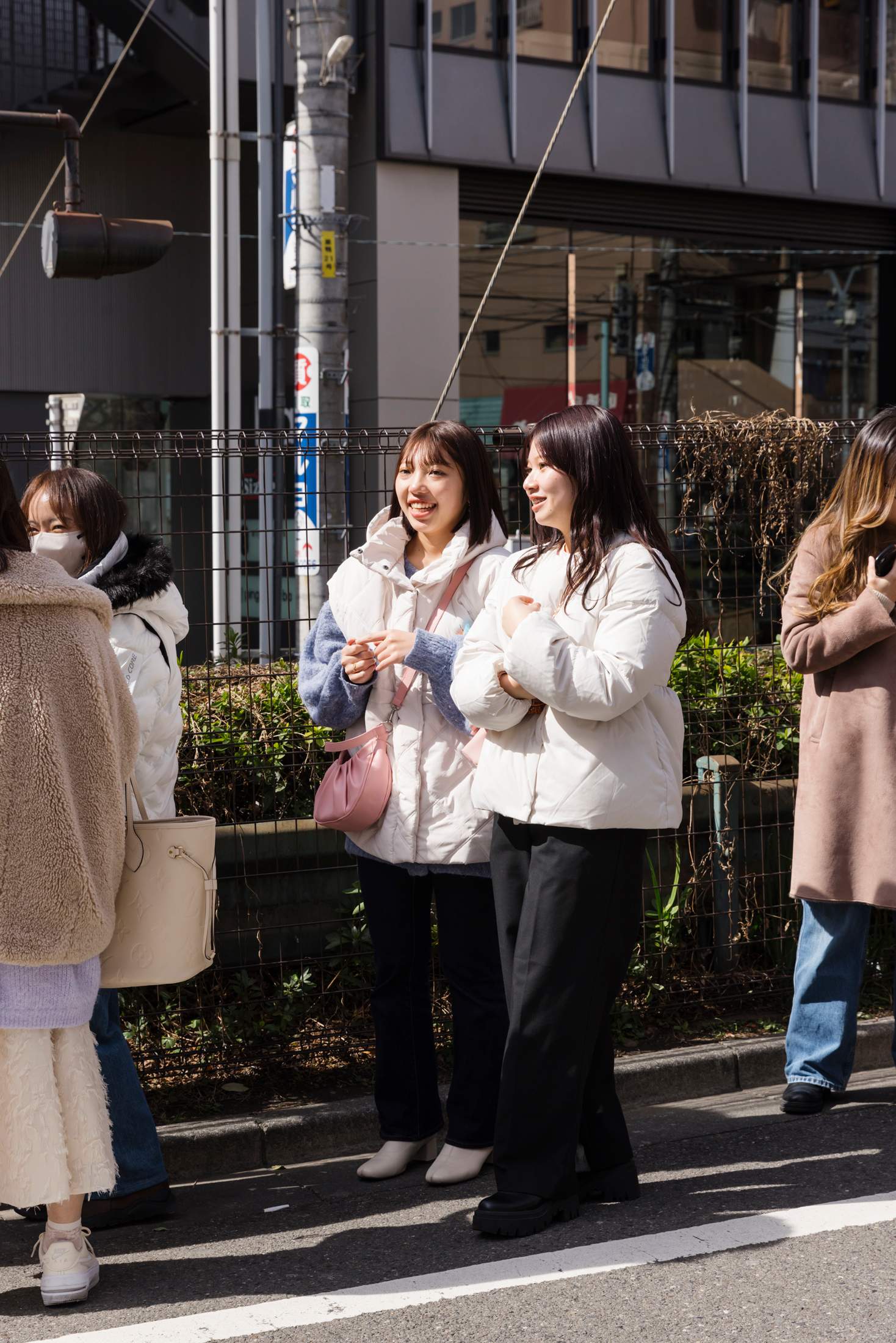
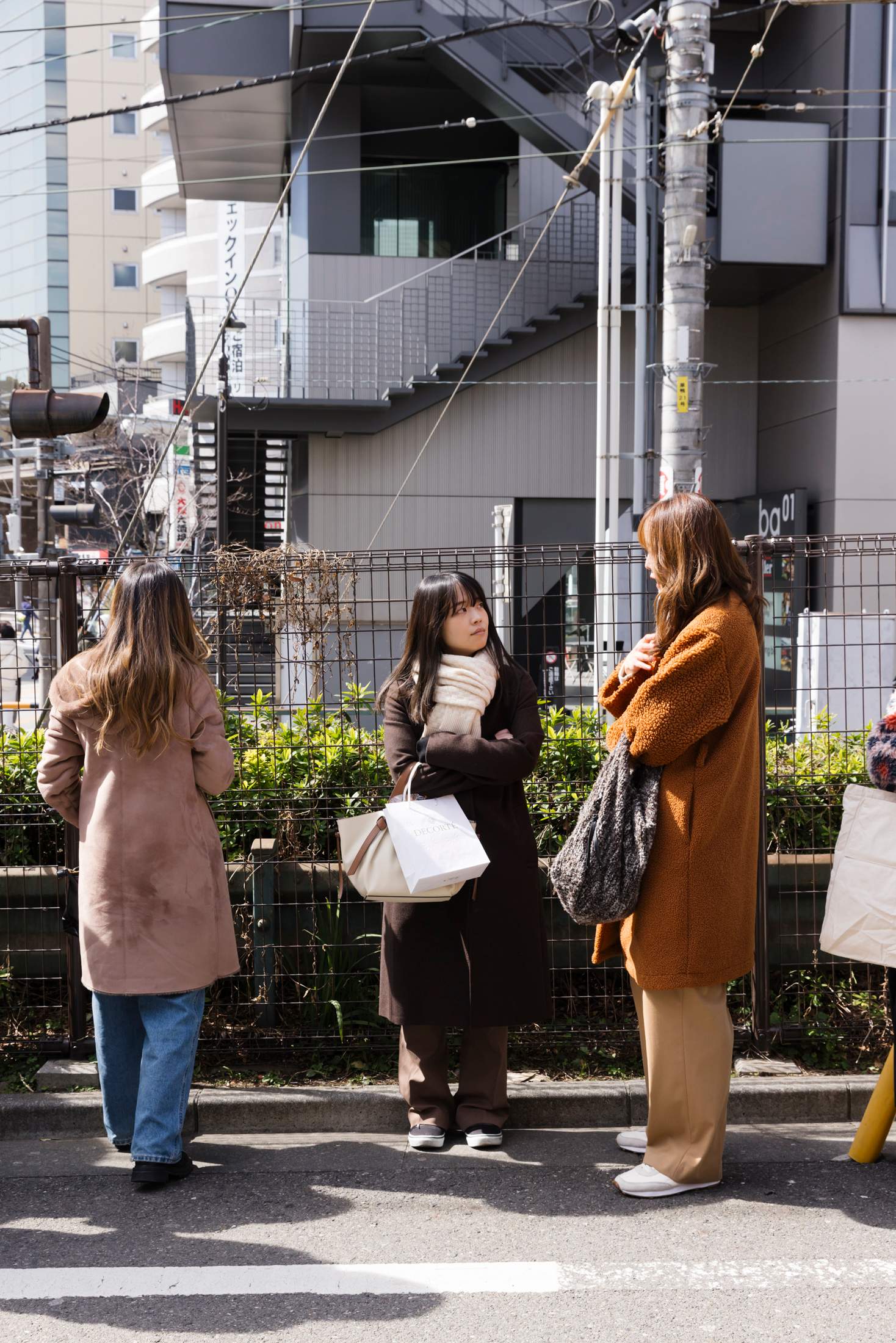
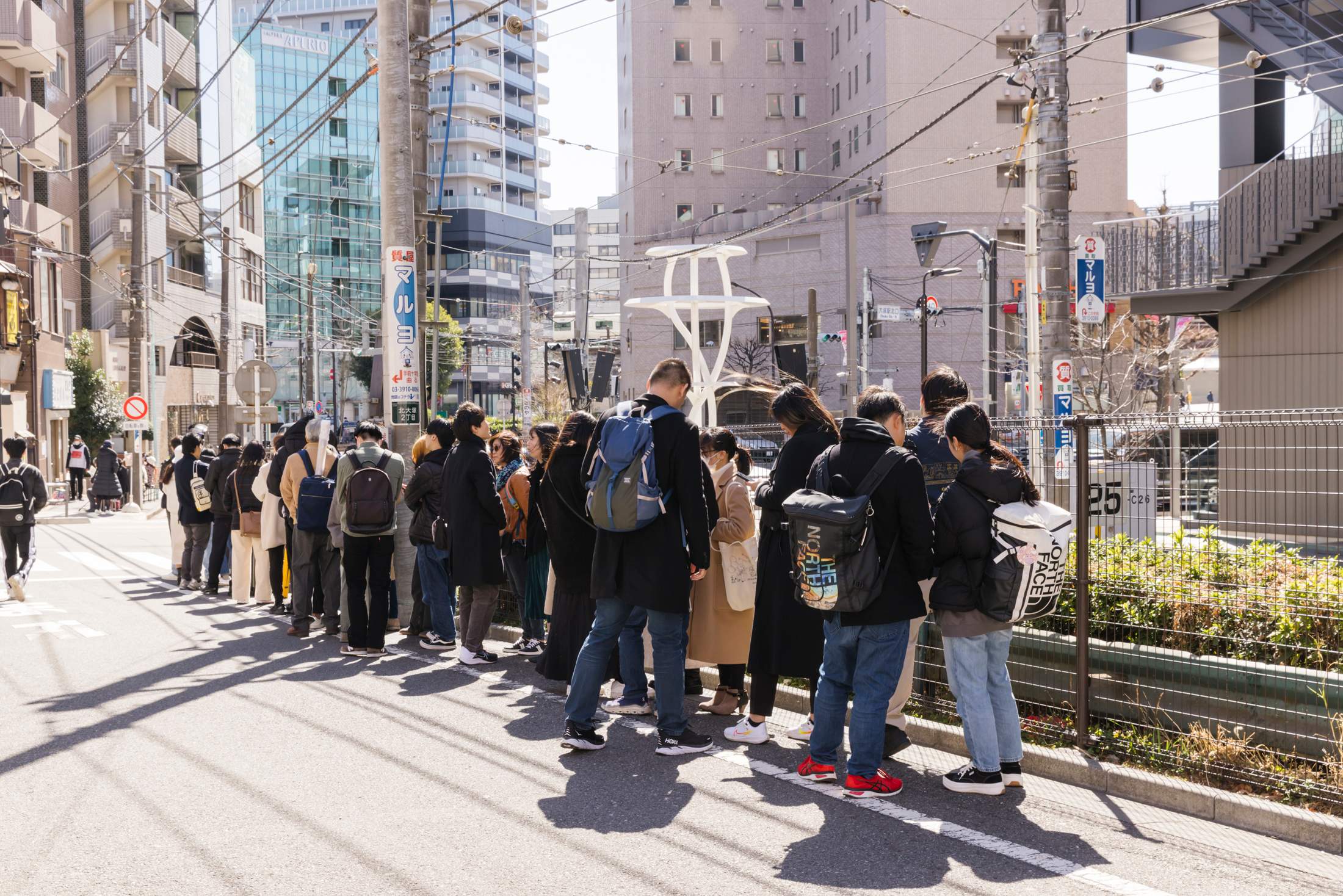
Philosophy of the queue
Since the invention of the atomic clock in 1949, time has been synched to the nanosecond across the globe. In the age of smartphones, access to your time is now at the behest of your employer, friends and the media. Now our greatest fantasy is to eliminate waiting altogether. One glaring obstacle remains: the queue.
When we queue, it feels as though we are giving control of our time over to another entity. Our schedules are crammed with plans and we react with hostility to anything that threatens them. The queue becomes the enemy and we protest or take out our phones to continue using our time in a manner that we think is more productive.
It is easy to think that nothing is gained by waiting. But it is more than an obstruction in the way of our desires, it is a space that invites our imaginations to come alive. To wait is to charge the longed-for object with value. An eagerly anticipated letter from a lover is not the same as an instant message, even if the contents of the messages are identical. The food or drink made for you as you inch closer in a queue wouldn’t taste the same if it had just appeared before your eyes.
Think of waiting not as an obstacle but as an ingredient to cultivate. Tended to poorly, with bad queues or a lack of patience, it will sour everything. But observed well, it can make every moment of our lives taste sweeter.
Can’t wait for more?
Jason Farman is a professor of American Studies at the University of Maryland and the author of Delayed Response: The Art of Waiting from the Ancient to the Instant World.
bagel shop
Running rings
It’s Bagels, London
New York-born photographer Dan Martensen can name supermodels and actors among his subjects but it’s his bagel shop in north London that is turning heads. The idea to bring a slice of New York bagel culture across the pond first began as a passion project. But when the shop opened in 2023 it was clear that the business would become more than a sideshow.
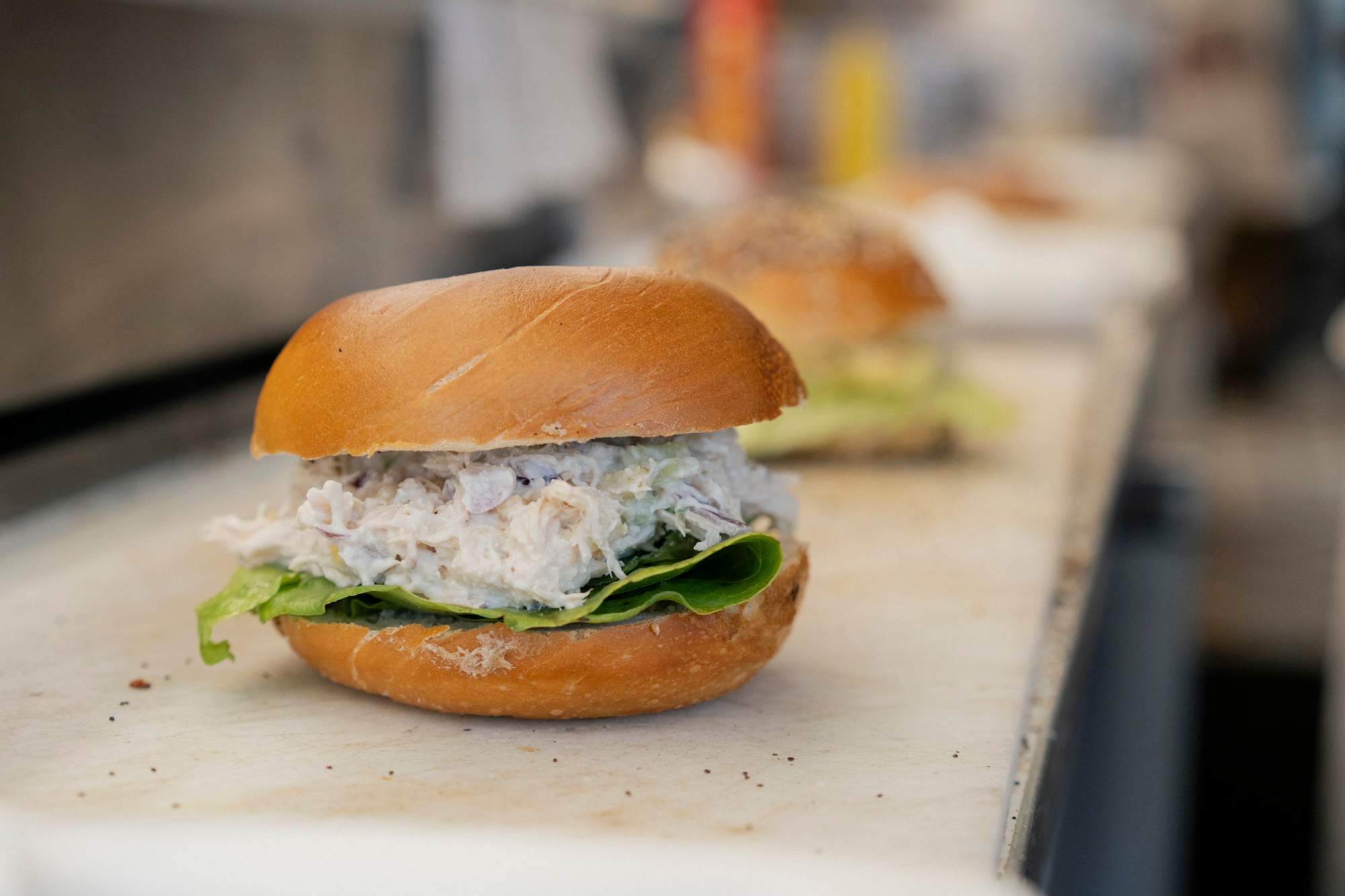
From the moment it opens, a long queue grows outside It’s Bagels on Regent’s Park Road. “It gets a bit lawless,” says the manager, Franklin Arthur. “When we ask people to cross the road, to start a new section of the queue, people start jumping ahead and we don’t know who was there first.” He often has to leave the assembly line to put on a high-vis jacket and control the chaos. The shop hired its first queue manager, so that Arthur will be able to focus on the bagels. “The demand is outrageous,” he says.
A mixture of north London devotees and out-of-town visitors make up the daily queue, which can be 50-people long by midday.
Customers who bring friends and family are helping to drive the queues: when monocle visits, David Lock has brought his mum, Tricia, visiting from Belfast, to his new favourite spot. Every week, Lock makes the journey from Bermondsey in southeast London to It’s Bagels and describes the occasion as “a bit of a pilgrimage”. But for others in line, the idea that waiting for your bagel makes it taste better divides opinion. “When you wait a long time for something, you have to hope [it meets expectations],” says Freddie Phelops, who is queueing for his first It’s Bagels experience. Another punter, Jack Bergman, welcomes the anticipation. “If you’re waiting 30 minutes for a bagel, it’s always going to taste better.”
itsbagels.com
